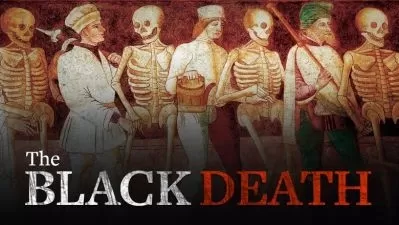Understanding Imperial China: Dynasties, Life, and Culture
Andrew R. Wilson
12:32:58
Description
With an astonishing 5,000 years of history, China is one of the world’s great civilizations, as well as a burgeoning superpower on the world stage. For a major portion of its existence—until as recently as the early 20th century—China was an empire, one of the greatest and most powerful the world has ever known.
It was during this long and diverse imperial era that the iconic features of Chinese civilization came into being: its art, architecture, literature, philosophy, spiritual traditions, social and bureaucratic structures, technological innovations, and more.
A knowledge of China’s imperial past is essential for any understanding of its present, as today’s China is linked in numerous ways to the remarkable culture of its empire. But a standard historical approach—looking at political, social, or economic events from a distance—is apt to leave us on the outside of China’s imperial experience, one of the most richly fascinating and revealing chapters in the story of civilization.
Here, then, is a brilliant and riveting alternate look at history, and a course unlike any other you’ll find on China. Understanding Imperial China: Dynasties, Life, and Culture takes you to the heart of life during China’s imperial dynasties, revealing the empire’s historical unfolding through the lives of individual people of all walks of life, spanning the centuries from the empire’s founding in 221 BCE to its dissolution in 1912. The inspired and detailed presentation of Professor Andrew R. Wilson of the U.S. Naval War College is vivid cultural history at its most compelling and insightful.
Journey to One of History’s Greatest Empires
In 24 extraordinary lectures, you’ll explore numerous vital facets of life in imperial China, such as these:
- Visit the Qin imperial necropolis in 211 BCE, where an army of masons, painters, and potters labored to assemble the 7,000 terra-cotta warriors, promising emperor Qinshi Huangdi martial dominance in the afterlife.
- Observe how a Chinese daughter became a guixiu or cultivated young lady, from mastering graceful behavior and household skills to the painful rite of foot binding— witness her marriage arrangements, wedding festivities, and her duties as wife.
- Grasp the deeply integral role and meaning of poetry in the Tang Dynasty; see how poetry of distinct genres such as court poetry, nature poetry, and occasional poetry was employed in specific social settings—even including verses scribbled on the flesh of courtesans.
- Travel to Xanadu, the bejeweled imperial seat of Kublai Khan, and witness the multiculturalism of the Mongol rulers of China through the eyes of Marco Polo, the missionary Giovanni de Montecorvino, and other Western observers.
Understanding Imperial China: Dynasties, Life, and Culture shows you how life was actually lived in the world-shaping times of China’s empire. Across the span of the course, you’ll discover what daily existence was like for government bureaucrats, scholars, and women of the court, as well as for soldiers, merchants, craftspeople, and even for concubines, eunuchs, and imperial cooks. Drawing on decades of dedicated research, Professor Wilson uncovers how these people and many others lived, what they ate, and what their activities and concerns were—their world and their worldview—all set against the backdrop of the richness, the diversity, the genius, and the splendor of imperial China.
Through these intimate glimpses of individual lives—across the great dynastic eras of the Qin, Han, Sui, Tang, Song, Yuan, Ming, and Qing—you’ll gain an inside look at China’s empire, how its traditions developed, and how the Chinese civilization we know came to be.
Look Deeply into Chinese Dynastic Life
In these enthralling lectures, Professor Wilson introduces you to a stunning range of subject matter, revealing all strata of life and society within imperial China. Among core aspects of imperial life, you’ll delve into:
- Opulent Lifestyles of the Han Nobility: Through stunning tomb artifacts, visualize the sumptuous mansion and social existence of Xin Zhui, prominent Han noblewoman. Take account of her family’s luxurious household, silk garments, lavish banquets, and entertainments, as well as their concern for learning and scholarship during the empire’s first golden age.
- Life on the Imperial Grand Canal: Discover the ingenious engineering, the lore, and the vast historical role of the Grand Canal, as it linked and integrated the empire economically, culturally, and politically. Witness the operation of the canal by bargemen, merchants, shipping brokers, customs agents, and others, and learn how the fortunes of the canal reflected those of the empire itself.
- The Celebrated Song Literati: Take the measure of the cultured class of gentlemen-scholars known as literati. Follow the careers, writings, and societal roles of two exemplars of this tradition: Su Shi, public servant, poet, painter, raconteur, and style setter; and Zhu Xi, educator, moral philosopher and Neo-Confucian innovator.
- The Empire’s Peasant Heartland: Within two lectures on rural life, investigate agriculture in the empire and the daily lives of peasants—their work and gender roles, family composition, homes, diet, and clothing. Learn also how rural workers cultivated and harvested rice, grew and processed tea, and produced China’s iconic silk.
- Sophisticated Living under the Ming: In the 16th century, grasp how flourishing trade in luxury goods and the import of New World silver gave rise to a remarkable era of high living—seen in the appearance of dinner parties; palatial restaurants; high fashion; pleasure travel; how-to guides for cooking, painting, and other leisure activities; commercial sex; and more.
- Imperial Gastronomy—The Qing Emperor’s Kitchens: At emperor Qianlong’s spectacular summer retreat, observe the massive apparatus of the Imperial Buttery as it prepares a luxuriant banquet. See how imperial menus reflected the social rank of diners, and how an epic feast in 1793 served as the setting for a Sino-British diplomatic encounter.
Explore the Dazzling Spectrum of Imperial Culture
Throughout the course, Professor Wilson’s detailed knowledge of China’s empire makes this an endlessly intriguing and engrossing journey. Within the wealth of historical narratives covered, he demonstrates a flair for describing events from centuries past as if they’re unfolding in present time.
Join aspiring bureaucrats on the path to the harrowing civil service examinations. From the years of studious preparation to the heart-stopping ordeal of the exams, you witness the process that forged the jinshi, the “elevated men” who administered the empire. In another unique experience, enter the opium salons of the elite, where connoisseurs savor the drug in pipes fashioned of cloisonné, silver, or ivory.
Your travels within the empire include such memorable sights as the grand boulevards, splendorous palaces and imposing temples of Chang’an, the medieval world’s greatest city, and the Qingming Shanghetu, a 17-foot painted scroll that gloriously portrays Song Dynasty life. And you’ll meet unforgettable human beings, whose lives vividly reveal the world around them, such as Ban Zhao, Han-era woman of letters, poet, scholar, and teacher; Tao Yuanming, Daoist luminary and the empire’s first great poet; Zhu Yuanzhang, powerful warlord and founder of the Ming Dynasty; and Hong Xiuquan, visionary reformer and architect of the religiously-inspired Taiping Rebellion.
In Professor Wilson’s dynamic presentation, China’s great empire comes alive in all its brilliance, poignancy, and majesty. Enriched with extraordinary imagery—artworks, texts, photos, timelines, maps, and animations—Understanding Imperial China: Dynasties, Life, and Culture is your passport to this phenomenal, historic world.
More details
User Reviews
Rating
Andrew R. Wilson
Instructor's Courses
The Great Courses
View courses The Great Courses- language english
- Training sessions 24
- duration 12:32:58
- English subtitles has
- Release Date 2023/12/30















